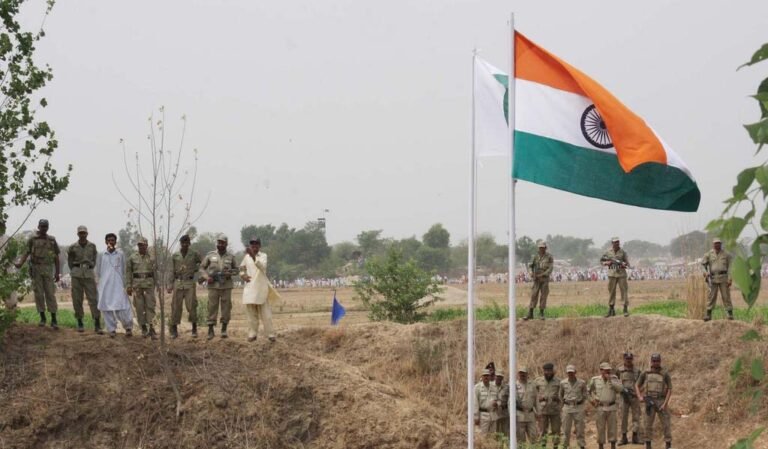In a tense turn of events, India and Pakistan have exchanged accusations of ceasefire violations just hours after agreeing to a ceasefire deal brokered by the United States. The two long-time rivals reached a peace agreement following a recent terrorist attack in the Pehalgam region of Jammu and Kashmir. However, the ceasefire quickly unraveled as both sides accused each other of breaking the truce.
On Sunday, May 11, reports from Al Jazeera and The News International revealed that Pakistan, in an early morning statement, reaffirmed its commitment to upholding the ceasefire agreement. Pakistan insisted that it was dedicated to ensuring that the agreement would be followed carefully. Yet, even before the announcement, India had accused Pakistan of violating the truce, claiming that Pakistan had launched counterattacks on Indian positions.
Pakistan’s Ministry of Foreign Affairs responded by accusing India of violating the ceasefire first, and it emphasized that Pakistan’s military was acting responsibly and with restraint. The statement further called for resolving any ceasefire-related issues through communication, stressing the need for both sides to exhibit patience and avoid escalating the situation.
The ceasefire, which was agreed upon after 48 hours of intense discussions, appeared to fall apart almost immediately. Hours after the ceasefire took effect, tensions flared once more along the Kashmir border. India quickly blamed Pakistan for resuming fire, accusing them of breaking the truce.
In a sharp response, India’s Foreign Secretary Vikram Misri condemned the renewed hostilities during a late-night press conference. Misri stated that Pakistan had resumed gunfire just hours after the ceasefire had been implemented, describing it as highly condemnable. He laid full blame for the violation on Pakistan and stressed that Indian forces were retaliating appropriately. Misri also noted that India was closely monitoring the situation and hoped Pakistan would realize the gravity of the situation and immediately cease its actions.
Misri added that the Indian military had been given strict instructions to take firm action against any ceasefire violations. His statements underscored India’s position on the issue: a resolute stance against any attempt to disrupt the fragile peace agreement.
Before the ceasefire was even fully implemented, explosions rocked the Indian-controlled Kashmir cities of Srinagar, Baramulla, and Jammu on the evening of May 10. The blasts triggered widespread panic, spreading fear across these urban areas and heightening the already-tense situation.
The violence and ongoing exchanges of gunfire and accusations come at a delicate time, as the two nations had managed to reach a rare agreement in recent weeks. The agreement was intended to prevent further escalation following a terrorist attack in Pehalgam that had stoked fears of renewed conflict between India and Pakistan.
Despite the failure of the ceasefire to hold, both sides appear to be working to avoid a larger military confrontation. It is unclear, however, how the situation will evolve in the coming days. With the international community closely monitoring developments, there are calls for both countries to de-escalate and return to negotiations.
The situation remains highly volatile, with the potential for further violence. Both India and Pakistan have expressed their willingness to negotiate and find solutions, but only time will tell whether the latest round of ceasefire violations will lead to more serious military action or whether the peace talks will hold.
As tensions continue to simmer, the world watches closely. The risk of further violence and instability is ever-present, especially in the disputed region of Kashmir. In the face of these developments, both countries face significant challenges in restoring peace and ensuring the safety of civilians caught in the crossfire.







